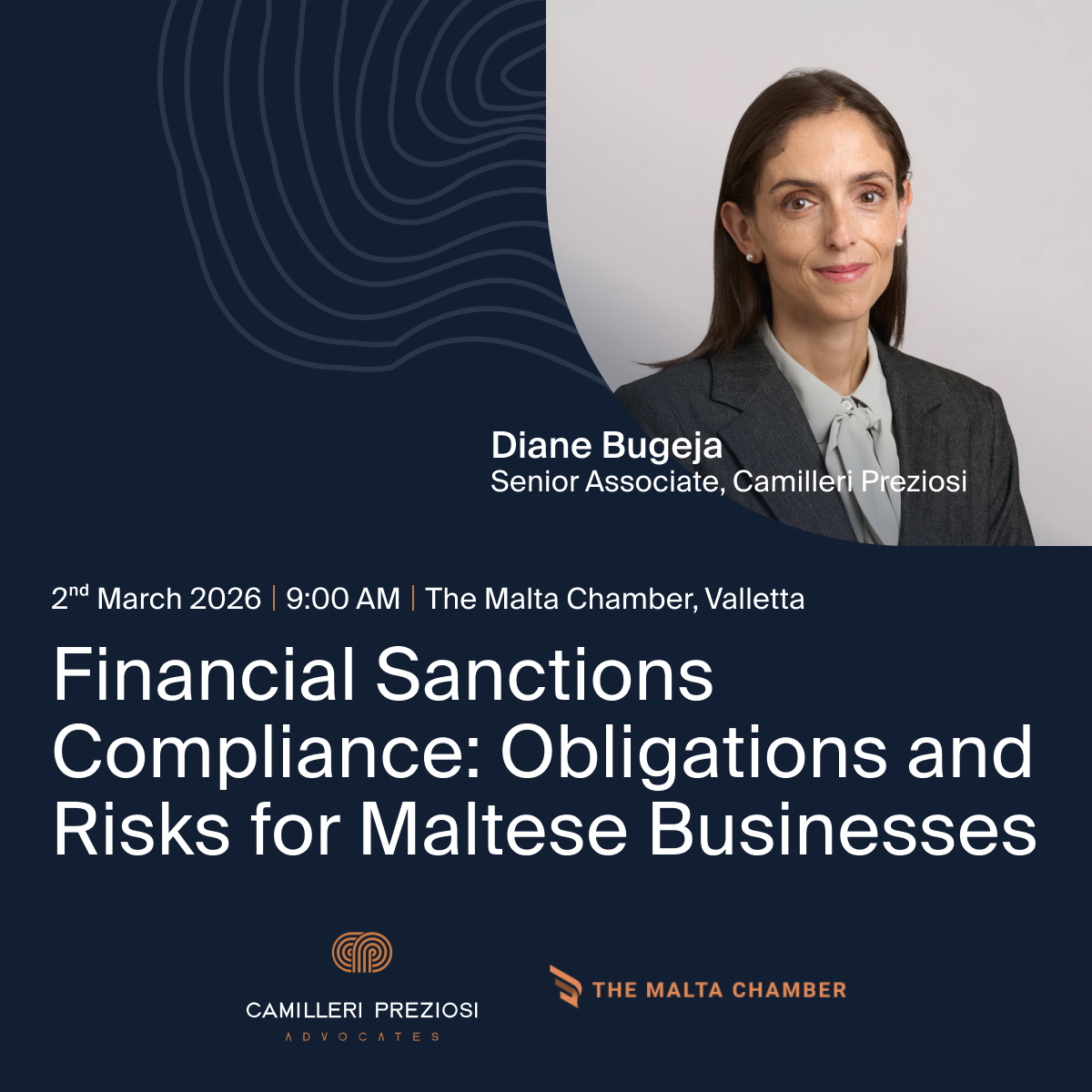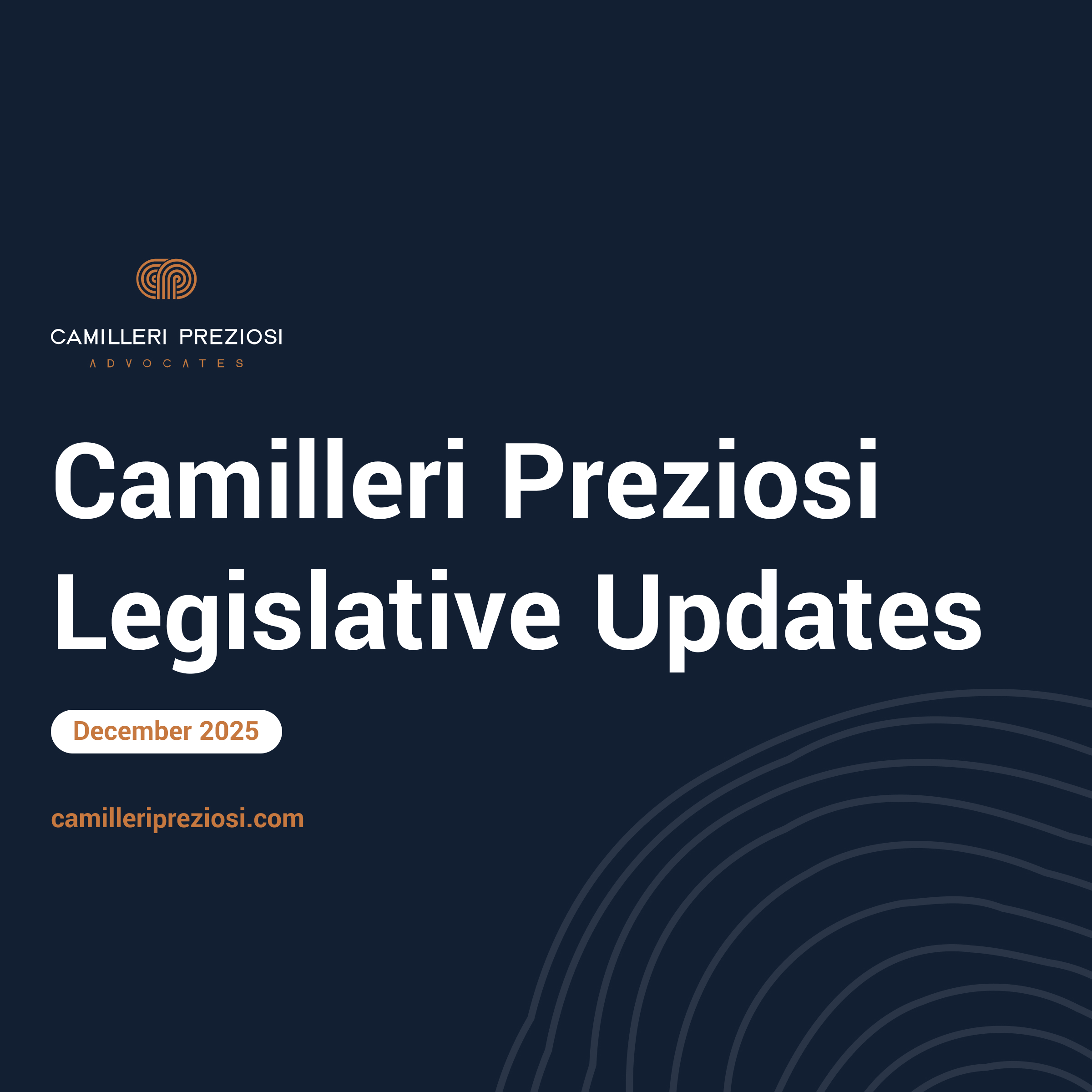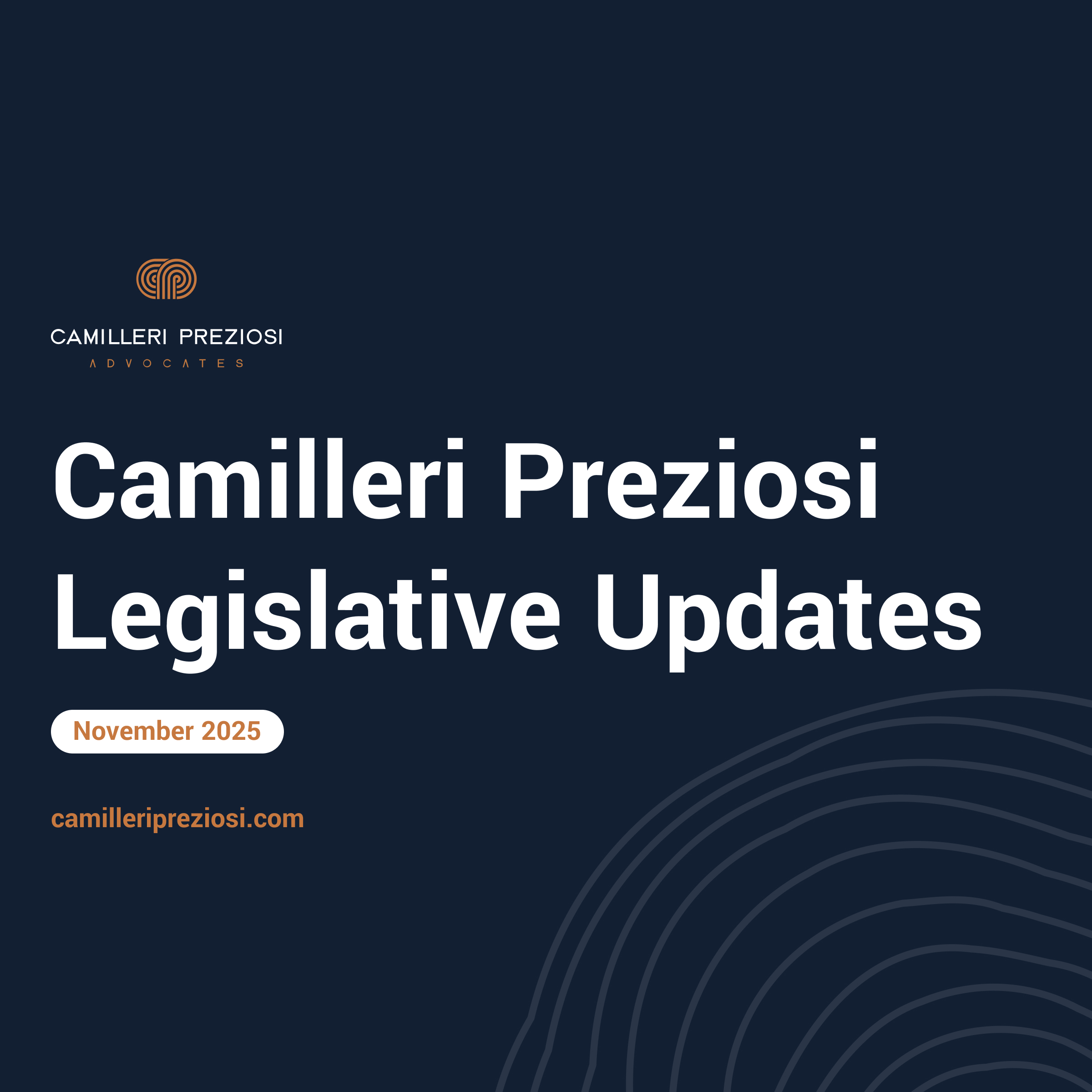
On 12 June 2025, the Malta Financial Services Authority (“MFSA”) published a position paper outlining its regulatory expectations on the use of distributed ledger technology (“DLT”) for the tokenisation of units or shares of collective investment schemes. This development is aimed at offering clarity for industry participants exploring digital innovation in collective investment scheme operations, without compromising regulatory safeguards.
Towards tokenised registers
The MFSA’s approach within the paper is deliberately narrow in scope. Rather than addressing tokenised trading, settlement, or distribution models, the MFSA focuses exclusively on the use of DLT for maintaining the register of unitholders of collective investment schemes. In this model, tokenised units serve as digital representations of units or shares of collective investment schemes that are recorded and transferred via blockchain-based systems.
Regulatory classification
It is clarified further that tokenised collective investment scheme units or shares that qualify as financial instruments fall under the Markets in Financial Instruments Directive (“MiFID II”) and are not treated as crypto-assets under the Markets in Crypto-Assets Regulation (“MiCAR”). This distinction is crucial, as it confirms that tokenised units or shares of collective investment schemes are not subject to dual regulation. That said, the MFSA still encourages a careful assessment of tokenised structures to ensure that the correct legal framework is applied in each case.
Eligible collective investment scheme types and fiat denomination
The position paper makes it clear that several collective investment scheme types are eligible to adopt tokenised registers, including Professional Investor Funds (PIFs), Alternative Investment Funds (AIFs), Notified AIFs (NAIFs), Notified PIFs (NPIFs), and UCITS. Tokenisation is permitted at the register level only, and each class of units or shares must be represented by a distinct token. Importantly, even where units or shares are tokenised, they must remain denominated in fiat currency to preserve valuation consistency and ensure that the redemption processes remain stable.
Operational oversight and role of service providers
Fund administrators will be responsible for implementing and operating the tokenised register. This includes managing the issuance, redemption, and transfer of tokens through smart contracts, while ensuring full AML and KYC verification of token holders and associated wallets. Custodians must also outline their approach to safekeeping digital assets, including wallet security and private key management. Transfers of tokenised units or shares of collective investment schemes remain subject to the scheme’s approval, and eligibility checks for investors must still be applied prior to onboarding.
Competence, Disclosure, and Risk Management
The MFSA outlines three essential areas of governance in the position paper within the context of tokenisation of units or shares of collective investment schemes, namely:
- Competence: the MFSA has expressed the view that directors, managers, and service providers involved in tokenised arrangements must possess sufficient understanding of DLT systems.
- Disclosure: the MFSA requires that disclosures to investors be clear, comprehensive, and tailored to reflect the technological nature of tokenisation. The scheme’s offering documents should describe the processes behind token issuance, wallet management, redemption mechanisms, and any applicable cut-off times. They must also explain how AML/KYC procedures are implemented in a tokenised environment, identify any restrictions on transferability, and disclose risks associated with smart contracts, technological failures, and blockchain infrastructure.
- Risk Management: the MFSA further requires that risk management frameworks be appropriately designed to address the unique challenges posed by DLT. The position paper outlines a broad, non-exhaustive set of risks that must be actively assessed and mitigated. These include system outages, cyber vulnerabilities, key management and recovery concerns, privacy implications, and reliance on third-party service providers. Contingency planning, operational resilience, and governance arrangements are also expected to be robust, documented, and subject to periodic review.
In conclusion, the publication of this position paper marks a foundational step in Malta’s regulatory journey toward embracing tokenisation within the investment funds space. By providing clarity on how DLT can be used to maintain investor registers, the MFSA is enabling the industry to modernise legacy operations—particularly within the transfer agency function—while maintaining the core protections expected of regulated collective investment schemes.







